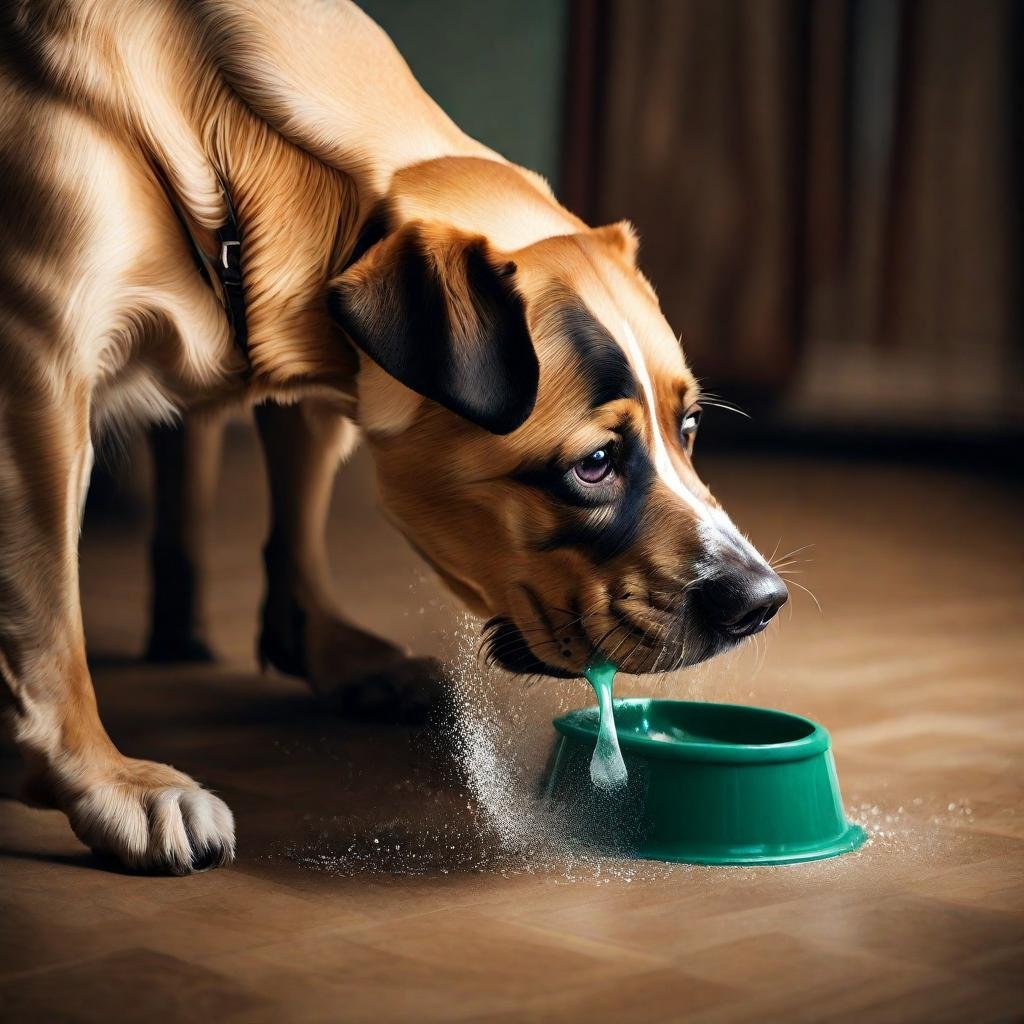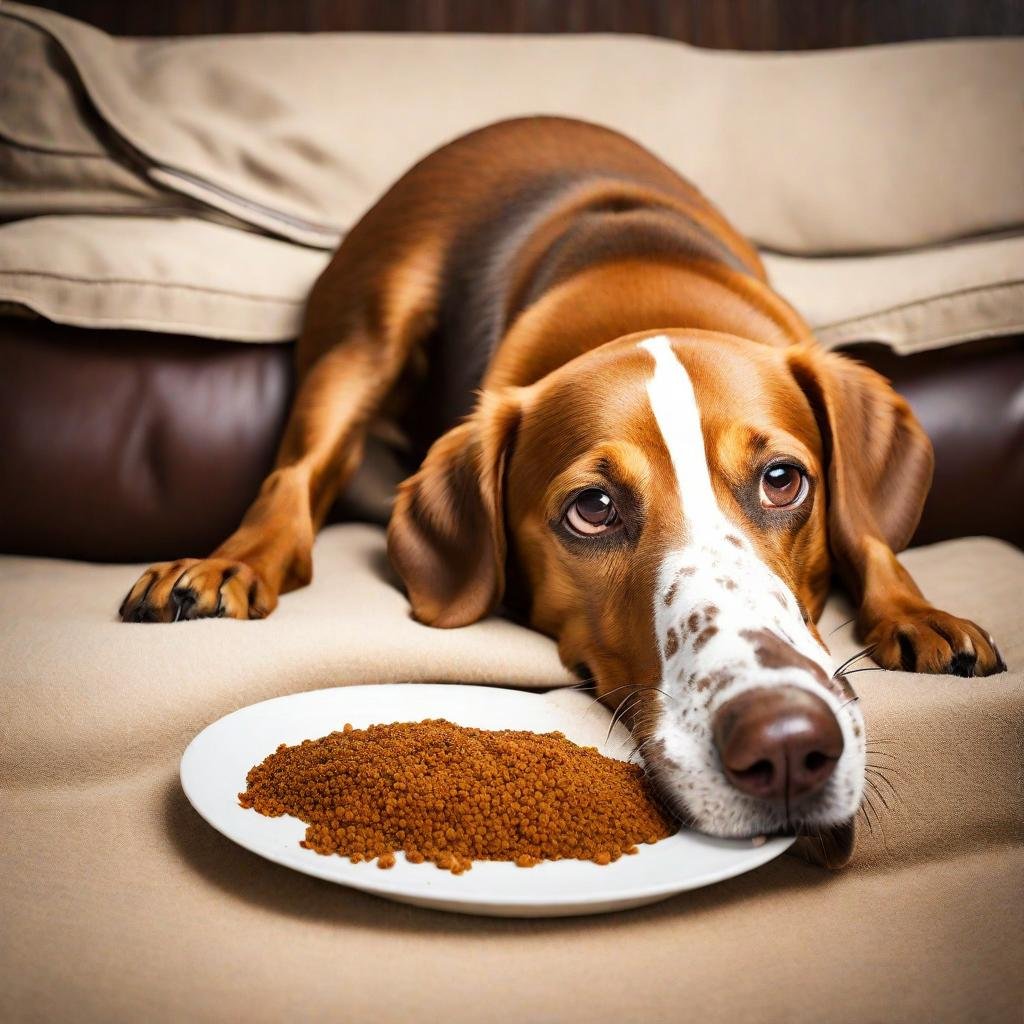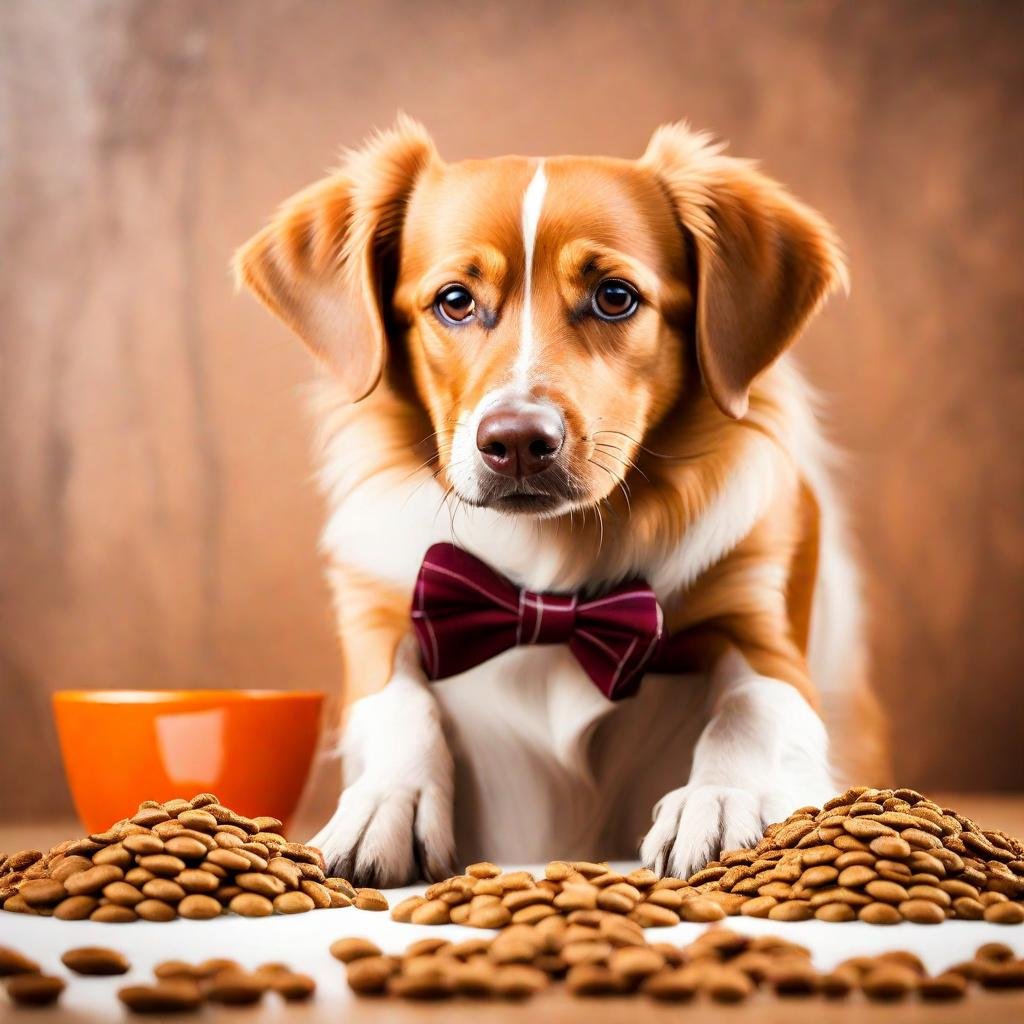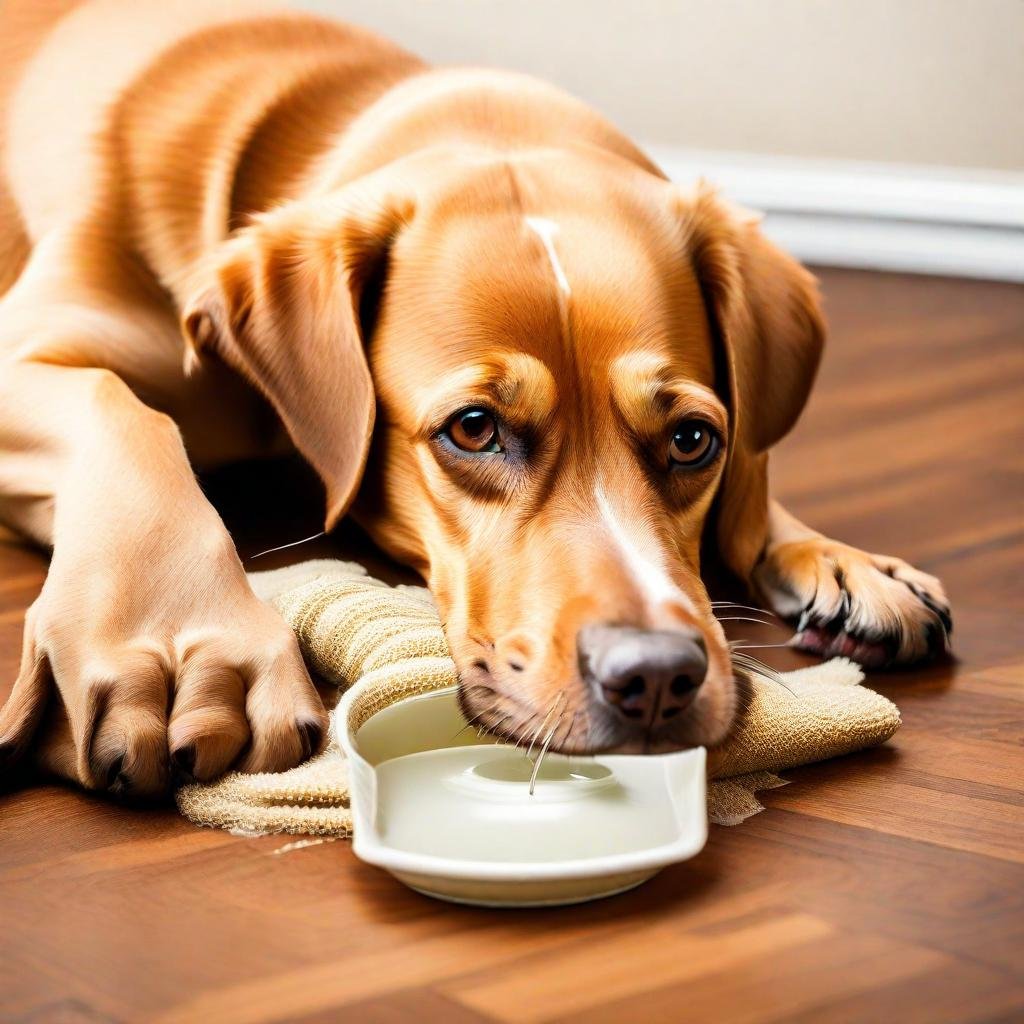“Canine Culinary Conundrum: Deciphering Why Your Dog Throws Up Undigested Food Hours After Dining”
## Introduction to Dog Digestion ##
Have you ever wondered, “Why is my dog throwing up undigested food hours after eating?” It’s a common concern among pet owners, and understanding the reasons behind this puzzling behavior can help you better care for your furry friend.

Table of Contents
Picture this: Your dog eagerly devours their meal, only to regurgitate undigested food shortly afterward. It’s a scene that can be concerning and confusing. But fear not! In this article, we’ll embark on a journey to uncover the mysteries behind this canine conundrum.
Dogs, like humans, can experience digestive issues for various reasons. Sometimes, it’s as simple as eating too quickly or consuming too much in one sitting. Other times, it could indicate underlying health issues or dietary sensitivities.

But fret not, dear reader! Throughout this exploration, we’ll delve into the intricacies of canine digestion, shedding light on why your dog might be experiencing these unsettling episodes. From exploring their eating habits to deciphering potential health concerns, we’ll leave no kibble unturned.
So, grab a treat (for your dog, of course) and join us as we unravel the mystery behind why your dog may be throwing up undigested food hours after eating. By the end of our journey, you’ll be armed with the knowledge and understanding needed to ensure your canine companion’s digestive health remains in top-notch condition.
## 1 of 4 ## Understanding Dog Digestion :
Understanding dog digestion is key to unraveling the mystery of why your furry friend may be throwing up undigested food hours after eating. Just like us, dogs have intricate digestive systems that play a crucial role in their overall health and well-being.
Imagine your dog’s digestive system as a finely tuned machine. It begins with the mouth, where food is chewed and mixed with saliva, initiating the digestion process. From there, it travels down the esophagus and into the stomach, where powerful acids break down the food into smaller particles.
But sometimes, things don’t go as smoothly as planned. Your dog might gulp down their food too quickly, overwhelming their stomach’s capacity to digest properly. This can result in regurgitation of undigested food, leaving you puzzled and concerned.
Additionally, certain dietary factors or underlying health issues could contribute to digestive disturbances in dogs, leading to vomiting episodes.

By understanding the intricacies of dog digestion, you’ll be better equipped to address any concerns and ensure your canine companion enjoys optimal digestive health. So, let’s dive deeper into the world of dog digestion and uncover the reasons behind why your dog may be experiencing this unsettling phenomenon.
## 2 of 4 ## Possible Causes of Vomiting Undigested Food :
Unraveling the possible causes of why your dog is throwing up undigested food hours after eating can shed light on the underlying issues affecting their digestive system. Let’s explore some potential culprits:
1. Eating Too Quickly:
Dogs are notorious for inhaling their food in record time. This rapid consumption can overwhelm their stomachs, leading to vomiting as their digestive system struggles to keep pace.
2. Overeating:
Just like us, dogs can overindulge from time to time. Eating excessive amounts of food can stretch their stomachs beyond capacity, resulting in regurgitation of undigested food.
3. Dietary Sensitivities or Allergies:
Some dogs may have sensitivities or allergies to certain ingredients in their food. This can trigger digestive upset, including vomiting of undigested food.

4. Gastrointestinal Issues:
Underlying gastrointestinal disorders such as gastritis, pancreatitis, or inflammatory bowel disease can disrupt the normal digestive process, leading to vomiting episodes.
5. Foreign Objects:
Dogs have a knack for getting into mischief, including ingesting foreign objects that can obstruct their digestive tract and cause vomiting.
Understanding these potential causes can help you identify the root of the problem and take appropriate steps to address your dog’s digestive issues. Remember, if vomiting persists or is accompanied by other concerning symptoms, consult your veterinarian for guidance and support.
## 3 of 4 ## Preventive Tips :
Preventing your dog from throwing up undigested food hours after eating involves implementing some simple yet effective strategies to support their digestive health. Here are some tips to consider:

1. Slow Feeding Techniques:
Encourage slower eating habits by using specialized slow-feed bowls or puzzle toys. These tools help extend meal time and prevent your dog from gulping down their food too quickly, reducing the likelihood of vomiting.
2. Proper Portion Control:
Ensure your dog receives appropriate portion sizes at each meal. Overfeeding can strain their digestive system and lead to vomiting episodes.
3. Dietary Considerations:
Opt for high-quality, easily digestible dog food that suits your dog’s age, size, and nutritional needs. Avoid foods that contain ingredients known to trigger sensitivities or allergies in your pet.
4. Regular Meal Schedule:
Establish a consistent feeding schedule for your dog. Regular mealtimes help regulate their digestive system and reduce the risk of digestive upset.

5. Supervised Eating:
Supervise your dog during mealtime to monitor their eating habits and intervene if necessary. This allows you to ensure they eat at a comfortable pace and avoid overeating.
By incorporating these preventive tips into your dog’s routine, you can help maintain their digestive health and minimize the chances of vomiting undigested food hours after eating. Remember, consistency and patience are key when implementing any changes to your dog’s diet and feeding habits.
## 4 of 4 ## When to Seek Veterinary Care :
Knowing when to seek veterinary care for your dog’s vomiting of undigested food hours after eating is crucial for their well-being. Here are some signs to watch for:
1. Frequency and Duration:
If your dog vomits occasionally but seems otherwise healthy and resumes normal activities afterward, it might not be cause for immediate concern. However, if vomiting becomes frequent or persists for more than 24 hours, it’s time to consult your veterinarian.
2. Changes in Behavior:
Monitor your dog for any changes in behavior such as lethargy, loss of appetite, or discomfort. These could be indicators of underlying health issues that require prompt veterinary attention.

3. Presence of Blood or Foreign Objects:
If you notice blood in your dog’s vomit or suspect they may have ingested a foreign object, seek veterinary care immediately. These situations can indicate serious digestive issues or obstructions that need urgent treatment.
4. Dehydration:
Watch for signs of dehydration such as excessive panting, dry gums, or reduced skin elasticity. Persistent vomiting can lead to dehydration, which requires veterinary intervention.
Always trust your instincts and err on the side of caution when it comes to your dog’s health. If you’re unsure whether to seek veterinary care, it’s best to consult with your veterinarian for guidance and support. Remember, early intervention can make a significant difference in your dog’s recovery and overall well-being.
Conclusion to Why is my dog throwing up undigested food hours after eating :
In conclusion, understanding why is my dog throwing up undigested food hours after eating is essential for their health and well-being. While occasional vomiting may be normal, consistent episodes could indicate underlying issues that need attention.
By delving into the intricacies of canine digestion, we’ve uncovered various factors that can contribute to this unsettling behavior. From eating too quickly to dietary sensitivities and gastrointestinal disorders, there’s a multitude of reasons why your dog may be experiencing digestive upset.

To help prevent vomiting episodes, consider implementing preventive measures such as slow feeding techniques, proper portion control, and choosing high-quality, digestible food for your dog. Regular veterinary checkups can also play a crucial role in monitoring your dog’s digestive health and addressing any concerns that arise.
Remember, knowing when to seek veterinary care is key. If your dog’s vomiting persists, is accompanied by other concerning symptoms, or if you’re unsure about their condition, don’t hesitate to consult your veterinarian for guidance.
By taking proactive steps and staying vigilant about your dog’s digestive health, you can help ensure they lead a happy, healthy, and vomit-free life. Together, we can unravel the mystery behind why your dog may be throwing up undigested food hours after eating, and provide them with the care and support they need to thrive
You can read this post How much dog food per day
“Canine Culinary Conundrum: Deciphering Why Your Dog Throws Up Undigested Food Hours After Dining” ## Introduction to Dog Digestion ## Have you ever wondered, “Why is my dog throwing up undigested food hours after eating?” It’s a common concern among pet owners, and understanding the reasons behind this puzzling behavior can help you better care…
My dog vomits occasionally after eating. Is this normal?

Occasional vomiting in dogs can be normal, especially if they eat too quickly or consume something that doesn’t agree with their stomach. However, if vomiting becomes frequent or persistent, it could indicate an underlying issue that requires attention.
Can stress or anxiety cause my dog to vomit undigested food?

Yes, stress or anxiety can sometimes lead to digestive upset in dogs, including vomiting. Changes in routine, loud noises, or unfamiliar environments can trigger stress responses in dogs, impacting their digestion.
Should I withhold food if my dog vomits undigested food after eating?

It’s generally not recommended to withhold food from your dog if they vomit occasionally. Instead, you can try feeding smaller, more frequent meals and monitor their eating habits closely. If vomiting persists or worsens, consult your veterinarian for advice.
Are there specific breeds more prone to vomiting undigested food?

While any dog can experience digestive upset, certain breeds may be more prone to vomiting due to their eating habits or genetic predispositions. Brachycephalic breeds (dogs with short noses) and large breeds known for fast eating may be more susceptible.
Can home remedies help alleviate my dog’s vomiting episodes?

In some cases, simple home remedies like offering small amounts of bland food (such as boiled rice and chicken) or providing access to fresh water can help soothe your dog’s stomach. However, always consult your veterinarian before attempting home remedies, especially if vomiting persists or is accompanied by other symptoms.
